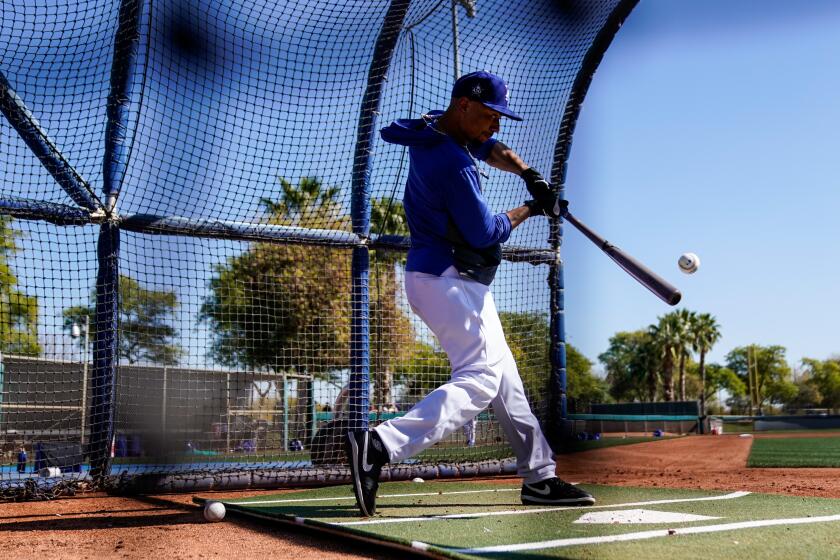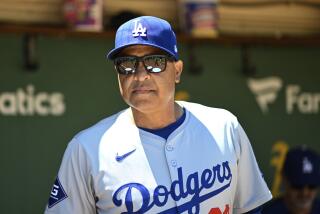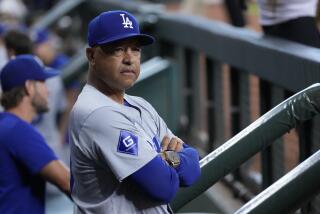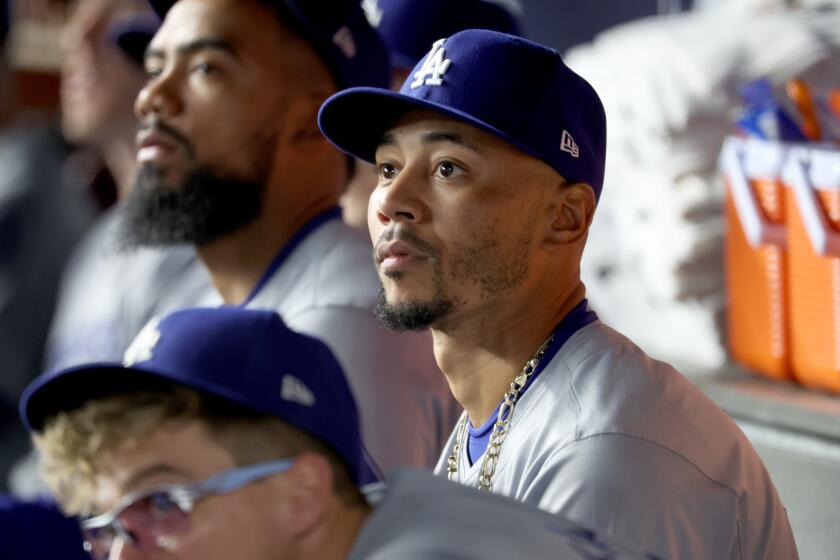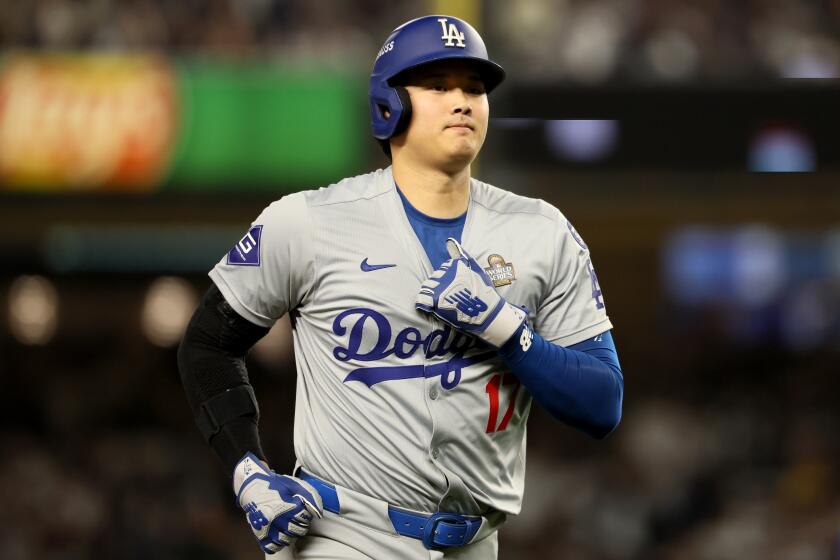Unusual times will make for an unusual MLB draft for Dodgers, other clubs
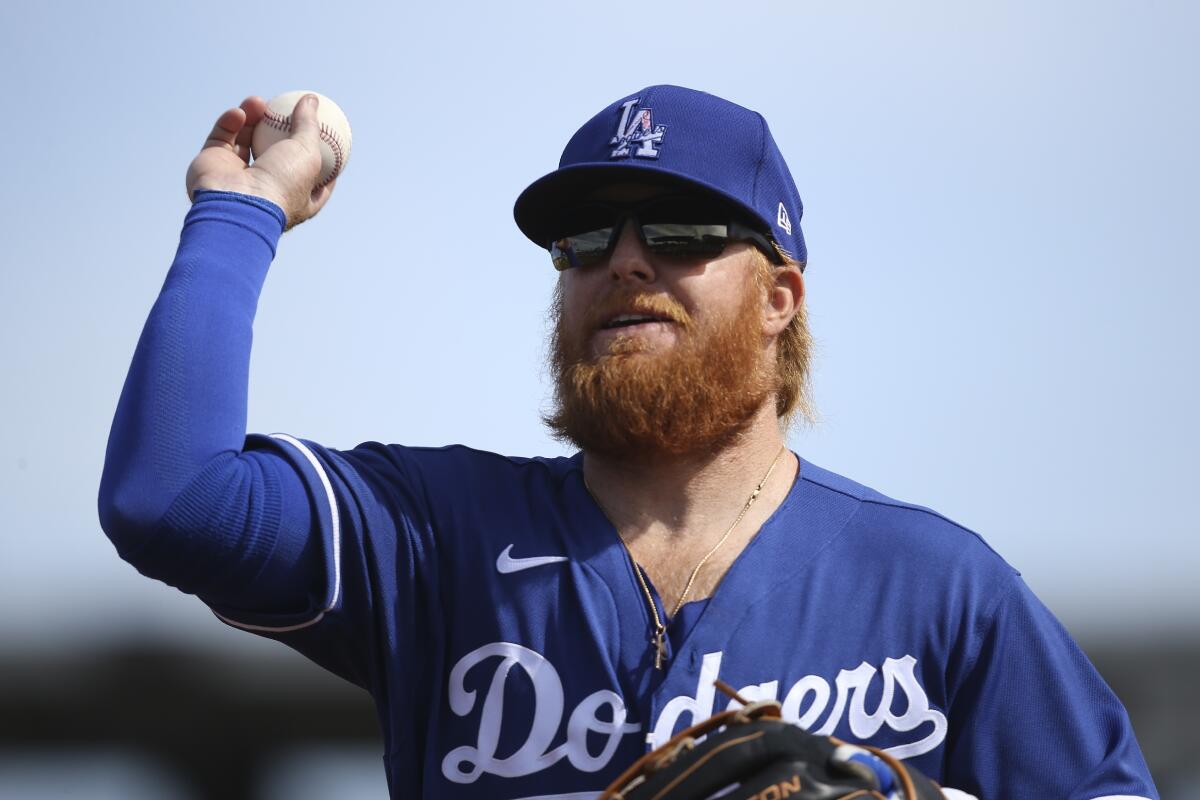
In Billy Gasparino’s estimation, the talent pool for Major League Baseball’s upcoming draft is the deepest in at least five years. The Dodgers’ director of amateur scouting believes the crops of college pitchers and high school hitters are particularly strong. The people in his corner of the world are salivating.
There’s just one problem: The draft will be historically short.
MLB reduced the event, scheduled to be held virtually June 10-11, from 40 rounds to five to cut costs as the league pushed forward without generating any revenue because of the COVID-19 pandemic. Undrafted players cannot sign for more than $20,000. That’s a fraction of what players drafted after the fifth round could attract in the past — last year, for example, the first pick in the sixth round had a slot value of $301,600.
As a result, fewer players than ever are expected to join the professional ranks since the draft was implemented in 1965.
“To be honest, it was disappointing to us and, I think, most of the scouting community,” Gasparino said in a video conference with reporters Friday.
By playing ball this season, California could save $45 million in “jock tax” revenue.
Undrafted top high school players likely will go to college. Top undrafted college juniors or junior college players likely will stay in school. There will undoubtedly be future major leaguers in those groups. The Dodgers’ roster alone provides ample evidence: Justin Turner (seventh round), Joc Pederson (11th round), Blake Treinen (seventh round), and Kiké Hernández (sixth round).
The Dodgers have six picks in this year’s abbreviated version — 29th, 60th, 66th, 100th, 130th, and 159th overall. MLB froze the assigned values of each pick to last year’s dollar figures, so the Dodgers’ bonus pool will be $5,928,400. Teams aren’t allowed to save any of that amount to spend on undrafted players; they can only spend it on players in the five-round draft.
“It’s really going to eliminate a lot of the creativity,” Gasparino said. “It’s going to be a challenge. It’s just those six picks. If you don’t spend the money, it doesn’t get spent.”
Teams also will delay signing bonuses. Clubs are allowed pay a maximum of $100,000 within 30 days of a player signing, half of the rest by July 1, 2021, and the remainder by July 1, 2022. The signing deadline was extended to Aug. 1 to give teams more time to conduct physicals.
Where players go once they sign remains uncertain. The chances of any of the affiliated minor leagues staging a 2020 season are slim. For the Dodgers’ draft picks, that probably means they will report to the spring training facility in Glendale, Ariz.
On top of the event’s unprecedented format and unclear aftermath, the COVID-19 pandemic required teams to overhaul their typical preparation process.
The outbreak shrunk college and high school baseball seasons, restricted organizations’ contact with prospects to phone calls and video chats, and made clubs work remotely with the limited information. Teams aren’t allowed to see players live, so they’re limited to videos players send to the league. The footage — usually a player taking batting practice or throwing a bullpen session — provides some reassurance more than anything.
How can Dodgers fans find an outlet for their frustration of the cheating Astros? The St. Paul Saints are here to help with unique bobblehead.
“It’s a little bit of value,” Gasparino said. “It still wouldn’t trump our base of information, but it does help. Sometimes for peace of mind. Like, ‘Yeah, he’s got all 10 fingers and two feet and he can throw.’
Gasparino said the Dodgers have held daily Zoom meetings since MLB suspended operations in mid-March. He explained they usually spend three to four hours examining eight to 10 players in each session. He said they’ve discussed roughly 165 players through Friday. They’ll start ranking players and going deeper into details Monday.
“We have more time to really dig into the information, the video, the looks we have had that I think we’ll continue to happen,” Dodgers president of baseball operations Andrew Friedman said. “And as we dig more, it obviously affects their rankings.”
The biggest challenge, according to Gasparino, is how to weigh the small sample sizes from games this spring. Colleges played, at most, 25% of their seasons. Some high schools in the northern part of the country didn’t play a single game.
Gasparino said the reality has forced him and his colleagues to accept more risk this year. As uncomfortable as that is, they didn’t have a choice.
More to Read
Are you a true-blue fan?
Get our Dodgers Dugout newsletter for insights, news and much more.
You may occasionally receive promotional content from the Los Angeles Times.

